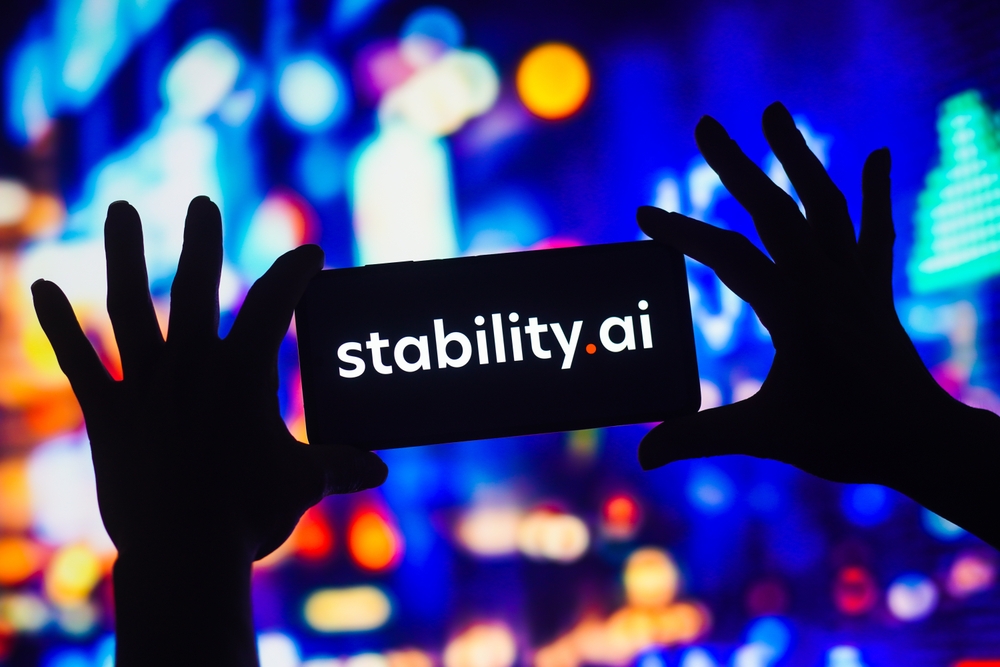Artificial intelligence firm Stability AI faced the sudden departure of Ed Newton-Rex through resignation. The former vice president contested the Stability AI assertion that using the copyrighted content leveraged to train AI amounts to fair use.
Newton-Rex resigned from heading the audio at the company, alleging the AI developer’s manner to justify training the generative AI model using copyrighted works. He indicated that resigning from the role to lead the Stability AI Audio team is inevitable, given that he disagrees with the company’s opinion that training its AI models by tapping the copyrighted works amounts to fair use practice.
Ex-Stability AI Vice President Supports Copyright Office Criticism Targeting Generative AI
Newton-Rex hailed former colleague Emad Mostaque as the founder of Stability AI for his input into the company. He decried his inability to change the stance adopted by the Stability AI regarding the utilization of copyrighted material for the model training.
Newton-Rex drew attention to the 22-page commentary regarding generative AI that Stability AI submitted to the US Copyright Office. Stability AI iterated artificial intelligence as an acceptable and transformative emerging technology. Besides, it offers social benefits in using the existing content since it is protected by fair usage protection.
Newton-Rex explained that his primary reason for disagreeing with the former employer’s stance is Congress questioning that copying the content amounts to fair use. The Congress expressed pessimism in the stance since its utilization hampers the marker and value of copyrighted work.
Newton-Rex opined that contemporary generative AI models utilize works that readily compete with existing copyrighted works that they were trained on. Consequently, he ruled out how utilizing the copyrighted works in training the generative AI models could be labeled a fair use.
Generative AI involves artificial intelligence-powered models one can leverage to create text, images, music, and video from input prompts. The model relies upon wholesale harvesting material from the open internet as training input.
From the definition, Newton-Rex considers copyright a critical component of discussion regarding artificial intelligence. Mostaque response to Newton-Rex’s post of X (formerly Twitter) featured a direct link. He hailed the working relationship and admitted that the position opened a critical discussion.
Fair Use Legislation Did not Envision Generative AI Models
Newton-Rex argued that the fair use legislation hardly envisioned generative AI models when formulated. As such, he faulted the Stability AI stance that training models were fair use. Instead, he reiterated his support for the generative AI proven not to exploit the creators by training on their output without permission.
Newton-Rex’s submission explaining the ground for his resignation reignited the ongoing lawsuit involving Stability AI, Deviant Art, and Midjourney against the image generators alleging copyright infringement.
A federal judge had in the last month dismissed the allegations levied by the artists alongside Sarah Andersen, claiming infringement from Deviant Art and Midjourney. However, the judge indicated that the lawsuit involving Stability AI could proceed.
Newton-Rex wondered why companies now valued at several billion repeatedly train generative AI models using the creators’ works without their consent. He added that the process yields new content that often rivals the original works.
Newton-Rex Resigns in Support of Creators to Resist Content Exploitation by Generative AI Companies
Newton-Rex dismisses the practice as unacceptable, considering that economies behind the creative arts involved threaten to eradicate sources of livelihood for creators reliant on the copyright.
In 2023, the WGA strike gained steam as actress and computer scientist Justine Bateman warned that generative AI could potentially disrupt the entertainment industry. The admission proved the key grievance evident in the WGA and SAG-AFTRA strikes.
Newton-Rex submitted that individuals working in the generative AI entities consider the fair use claim erroneous. He urged fellow employees to rethink their stance and speak up. By doing so internally and publicly, companies exploiting the creators’ work would realize that hiding behind fair use hardly yields a long-term solution for generative AI.
Editorial credit: rafapress / Shutterstock.com
